
Browse our fun-packed, helpful plant-based articles, and delve deeper into this healthy, sustainable lifestyle!


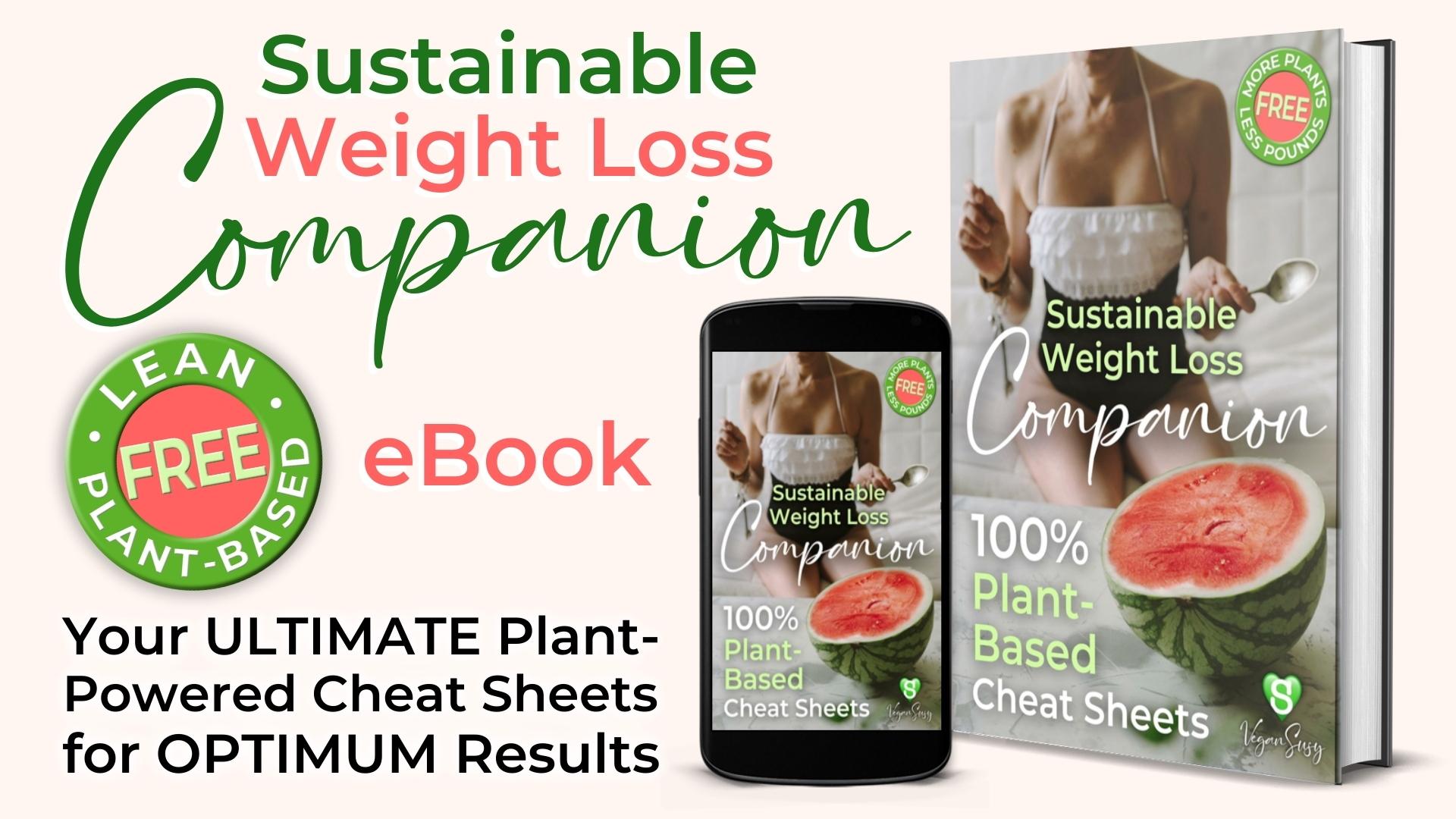
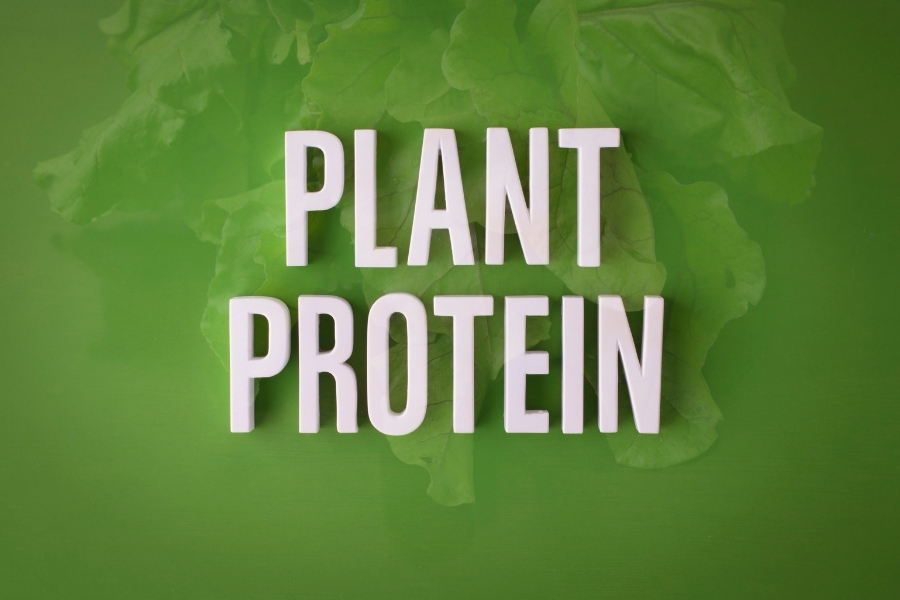
14 Top Plant-Based Vegan Protein Sources for Women in Menopause
Plant-Based Lifestyle Tips For Women
Author: Plant-Based Susy
Did you know that women going through menopause need more protein in their diet? The sudden decline in oestrogen during midlife is linked to decreased muscle mass. This can sound a little scary, but fortunately, there are plenty of plant-based protein sources for women in menopause to choose from.
Top plant-based protein sources for women in menopause include seitan and lentils. Soya products, including edamame, tofu, and tempeh, help balance oestrogen levels and decrease menopausal symptoms. Other high-protein foods include nuts, quinoa, spirulina, nutritional yeast, and hemp seeds.
Most women dread the arrival of menopause as fluctuations in oestrogen can cause havoc with our once shapely and perfectly predictable bodies. While we may be gaining wisdom with age, muscle mass and tone start to decrease. This makes way for weight gain and the dreaded middle-age spread!
Let's dive in to uncover the best plant-based protein sources for energy and muscle in menopause.
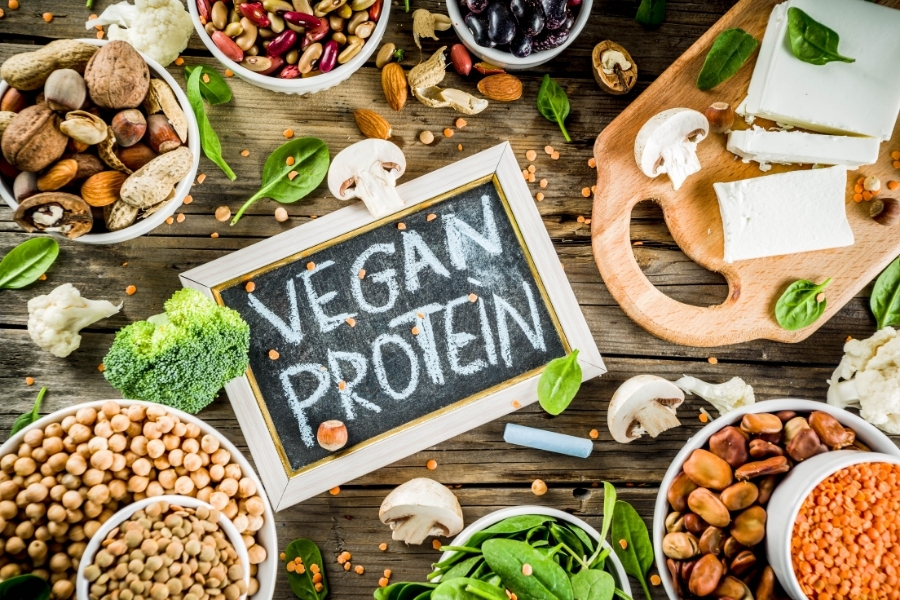
Table of Contents:
Myths about Plant-based Protein for Women in Menopause?
One of the most common myths surrounding plant-based eating is that it can't provide sufficient protein to sustain a healthy body.
We are here to turn that notion on its head — not only can it easily provide more than the required recommended daily allowance, but plants also deliver protein in a much healthier package than meat.
Plants are naturally so packed with protein that large animals like horses, hippos, and elephants are able to grow and thrive eating only vegetation! Fortunately, humans have a much greater variety of protein-loaded plant sources to choose from!
Before we move onto our list of top protein sources for women in menopause, let's find out what our daily protein intake should be when we reach middle age.
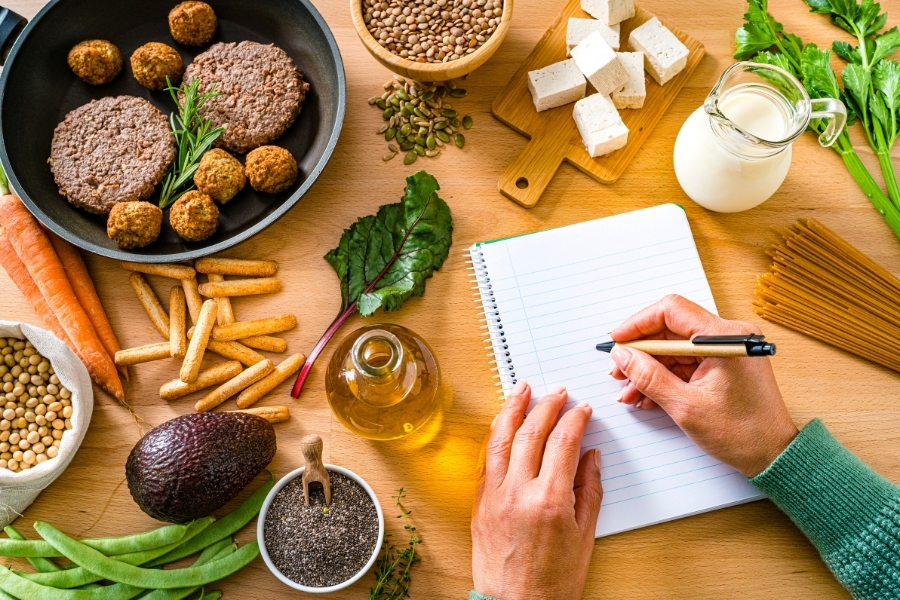
How Much Protein Do Women Need During Menopause?
The transition from perimenopause through to post-menopause can take up to ten years. While it is not possible to turn back the hands of time, consuming enough protein to provide our changing bodies with everything they need on a plant-based diet is entirely doable.
Plant-based proteins not only provide everything we need for cell renewal but also deliver it in a way that has a positive effect on many of the uncomfortable symptoms often associated with menopause.
During this time, muscle mass may start decreasing at a steady rate, which means:
Loss of strength
The body loses the capacity to store glucose, which results in an increased capacity to store carbohydrates and sugar, which results in weight gain.
Fortunately, we can fight back by giving our bodies enough strength-building exercises and high-quality proteins to prevent muscle deterioration.
The British Heart Foundation reports that most adults require .75 g of protein per kilo of body weight per day. Women in the menopause years should get significantly more and should aim for between 1 and 2 grams of healthy protein per kilogram of their body weight daily.
For our American friends, this translates to about 1/3 ounce of protein per pound of body weight per day for most adults, with menopausal women aiming for approximately 1/2 to 1 ounce of protein per pound of body weight daily.
An important caveat is that to be effective, the daily protein intake should be spread over the day. Eating smaller portions more often or having high-protein snack times ensures that the body can more effectively utilise the macronutrients.
14 Top Protein Sources for Women Vegans in Menopause
There are many plant-based foods that contain good amounts of protein. Since women in menopause need more protein each day, it helps to know exactly which plant-based foods really pack a punch so that you can effortlessly reach the daily required target.
Knowing what protein-rich ingredients to include makes meal planning more effective. You can even learn to be creative about including them in recipes.
Some of the foods on Vegan Susy’s list can be added as toppings to instantly amp up the amount of protein — and the delicious taste —in other dishes!
The following are our top picks for plant-based protein sources for women in menopause:
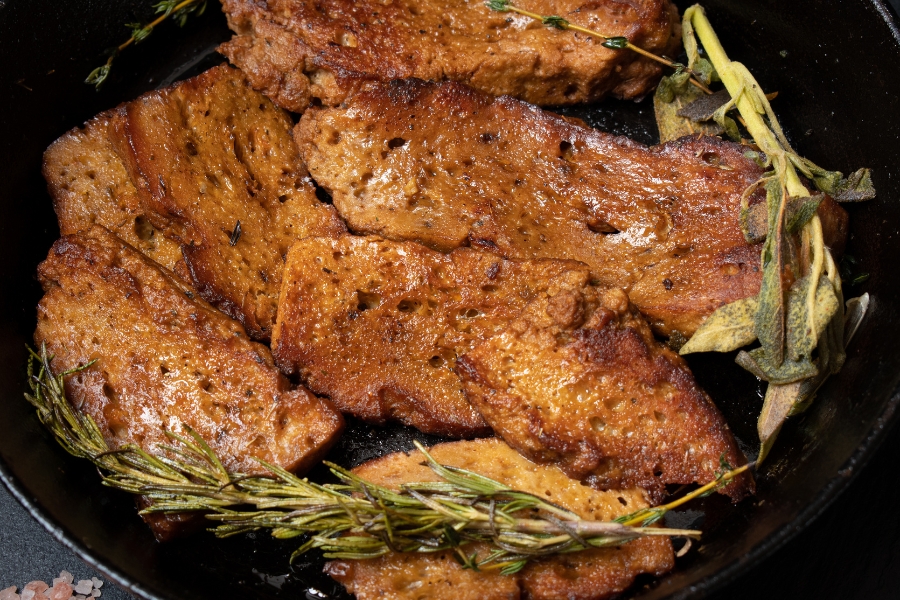
1. Seitan
Amount of protein per 100 g: 25 – 27 g
Seitan, also known as 'wheat meat,' is a top source of protein for those on a plant-based diet. It is a popular, chewy meat alternative that also contains good amounts of selenium. The only downside is that it is not suitable for anyone who is gluten intolerant.
Meal Ideas
Seitan stir-fry with mixed vegetables and brown rice.
BBQ seitan sliders with coleslaw on whole grain buns.
Seitan kebabs marinated in a tangy tomato sauce and grilled with bell peppers and onions.
2. Edamame
Amount of protein per 100 g: 18 g
For a protein punch that is also high in dietary fibre, it doesn't get much better than edamame. These immature soya beans are an excellent plant-based protein and are considered a 'whole protein' as they contain all the amino acids required by the human body.
Soya products have long been known to contain beneficial properties that may help ease the symptoms of menopause. In addition to containing a generous amount of protein, these green soya beans are also high in Vitamin K, folate, copper, and manganese.
Meal Ideas
Edamame hummus served with whole grain crackers and vegetable sticks.
Edamame and avocado salad with cherry tomatoes, cucumber, and a lemon-tahini dressing.
Spicy edamame stir-fry with tofu, broccoli, and sesame seeds.

3. Tempeh
Amount of protein per 100 g: 20.5 g
There are many ways to enjoy tempeh, which is made from fermented soya beans. It is not only a versatile meat alternative but also a plant-based superfood. It contains all 9 essential amino acids required by our bodies and is also a good source of iron and calcium.
Meal Ideas
Tempeh "bacon" BLT sandwich with lettuce, tomato, avocado and vegan mayo on whole grain bread.
Tempeh tacos with black beans, corn salsa, and creamy cilantro lime sauce.
Grilled tempeh skewers with pineapple and bell peppers served with quinoa.
4. Chia Seeds
Protein per 100 g: 16.7 g
Add chia seeds to smoothies, cereal, and salads, or make a chia pudding to get an instant protein boost. These tiny seeds are protein dynamos, and their subtle flavour means that they can add a delightful texture to dishes without overpowering the recipe.
Meal Ideas
Chia seed pudding topped with fresh berries and almond butter.
Chia seed and banana smoothie with spinach, mango, and coconut water.
Chia seed energy balls with dates, almonds, and cocoa powder.
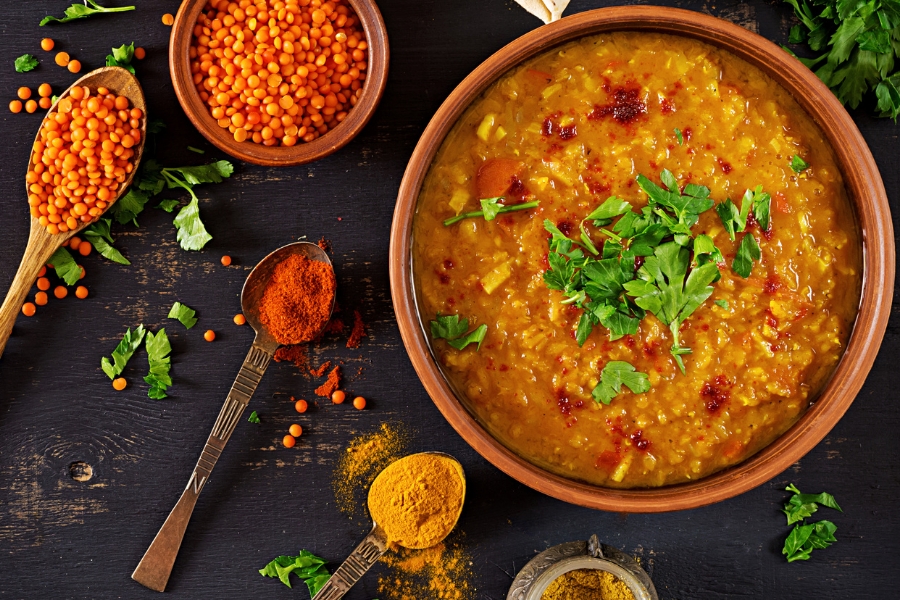
5. Lentils
Protein per 100 g: 9 g
Lentils are a well-known source of plant-based protein and have become a staple filler in many dishes. In addition to being high in protein, these tiny beans have also been shown to be beneficial to gut health and reduce the chance of heart disease and some types of cancer.
Meal Ideas
Lentil soup with carrots, celery, and kale served with crusty whole grain bread.
Lentil curry with coconut milk, spinach, and cauliflower served over brown rice.
Lentil and vegetable stew with potatoes, carrots, and green beans in a savoury sun-dried tomato broth.
6. Tofu
Protein per 100 g: 10 g
Tofu, which is also called bean curd, is a versatile plant food made from soya. The distinctive white plant food is made from soya milk, adds texture to dishes, and can soak up the flavour of food that it is mixed with. If you want to know how delicious tofu can be, check out our Tangy Orange Tofu recipe on Vegan Susy's recipe page.
Meal Ideas
Tofu scramble with peppers, onions, and spinach served with whole grain toast.
Crispy baked tofu bites with a sweet and spicy dipping sauce.
Tofu and vegetable stir-fry with broccoli, bell peppers, and snap peas in a garlic-ginger sauce.
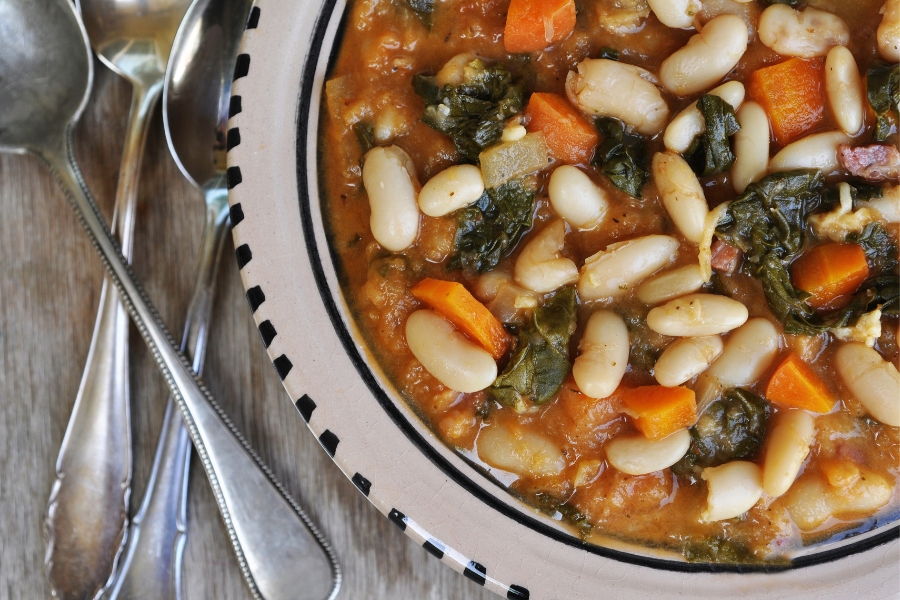
7. Dried Beans
Protein per 100 g: 7 – 10 g
Beans (such as black beans, red kidney beans and white beans) are a low-fat, affordable, plant-based food that is also a great source of fibre and iron. Besides just tasting great, research has also shown that the humble bean can work wonders to reduce cholesterol, lower blood pressure, and, best of all, reduce belly fat!
Meal Ideas
Black bean and corn salad with avocado, cherry tomatoes, and lime-coriander (cilantro) dressing.
Red kidney bean and sweet potato chilli topped with diced caramelised onions and fresh coriander (cilantro).
White bean and kale soup with carrots, celery, and Italian herbs served with crusty wholemeal bread.
8. Chickpeas
Protein per 100 g: 9 g
There is something almost magical about the versatility of chickpeas. This plant-based staple, with a slightly nutty flavour, can be enjoyed as a spread, dip, a crunchy ingredient in salads, soups, or even just munched on their own.
Chickpeas are not only an outstanding source of protein in a vegan diet, but they also contain a good amount of dietary fibre.
Meal Ideas
Chickpea salad sandwiches with mashed chickpeas, celery, red onion, broken nori sheets and vegan mayo.
Chickpea curry with tomatoes, spinach, and coconut milk served over basmati rice with lime pickle.
Roasted chickpea and vegetable Buddha bowl with roasted sweet potatoes, Brussels sprouts, and tahini dressing.
9. Nuts
Nuts are a great on-the-go snack that taste moreish and are loaded with protein. Since not all nuts are the same, let's take a look at the protein content of some popular varieties.
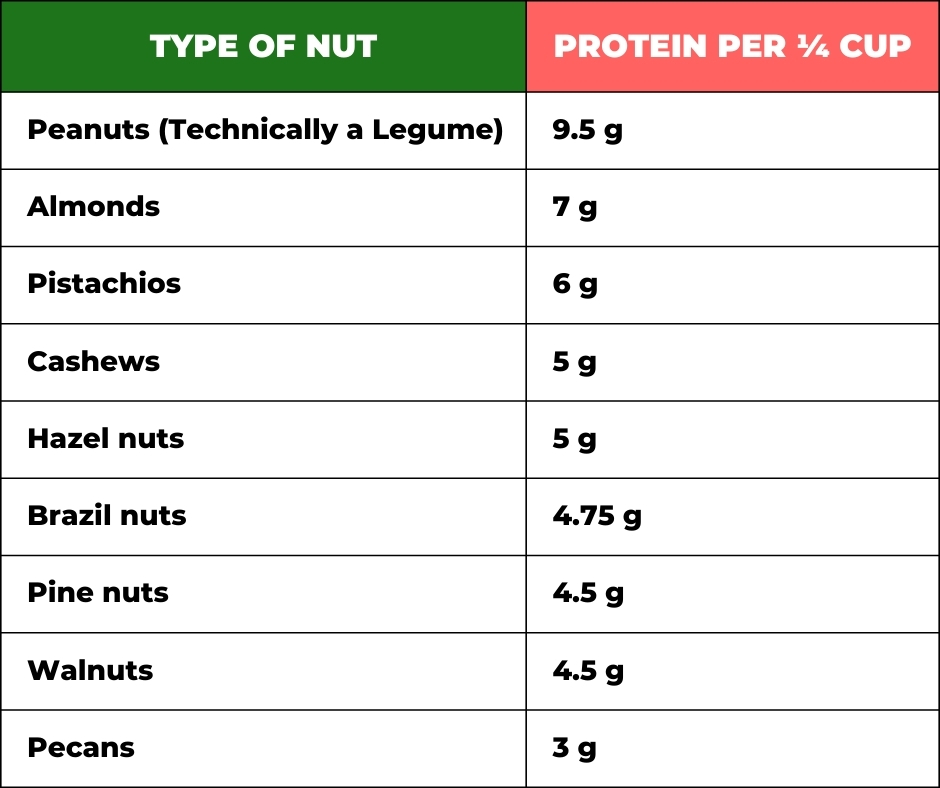
Meal Ideas
Almond butter and banana sandwich on whole grain sourdough bread drizzled with agave or maple syrup.
Pistachio-crusted tofu served with lemon roasted asparagus and quinoa.
Cashew cream pasta with roasted cherry tomatoes, spinach, and garlic.
10. Quinoa
Protein per 100 g cooked: 4.5 g
All grains, including oats, barley, wheat, and rye, are excellent sources of protein. Quinoa is a standout among the healthy grains that can be beneficial to women in midlife as it is also high in anti-inflammatory phytonutrients. This means that it could help alleviate painful joint pain, which is a common symptom of menopause.
Meal Ideas
Quinoa salad with cucumber, tomatoes, olives, and vegan cream cheese with chives in a lemon vinaigrette.
Quinoa and black bean stuffed bell peppers topped with avocado and salsa.
Coconut quinoa porridge with mango, toasted coconut flakes, and a drizzle of maple syrup.
11. Spirulina
Protein per 14 g (2 tbsp): 8 g
For a quick protein boost that you can add to almost anything, look no further than spirulina. The blue-green algae powder is considered a superfood, and in addition to providing 4.02 grams of protein per tablespoon, it is also high in calcium, iron, and magnesium.
Spirulina powder can be sprinkled into soups or salads, added to juices or smoothies, or mixed into other recipes. It has been found to have positive effects on weight loss metabolism and may even support mental health. This is excellent news for women in menopause who may be struggling with bouts of depression.
Meal Ideas
Spirulina smoothie bowl topped with granola, berries, and coconut flakes.
Spirulina energy balls with dates, almonds, and shredded coconut.
Spirulina guacamole with avocado, lime juice, tomatoes, and cilantro served with whole grain tortilla chips.
12. Nutritional Yeast
Protein per 16 g (2 tbsp): 8 g
Nutritional yeast may not sound too appealing, but this plant-based protein powerhouse is a surprisingly versatile ingredient! It can be used as a seasoning on pasta, casseroles, or popcorn or as a thickener for soups.
In addition to only being high in protein, nutritional yeast also contains a good amount of fibre, which helps to maintain good gut health. It's also a great source of vitamin-B12.
Meal Ideas
Vegan mac and cheese with nutritional yeast, cashews, and butternut squash sauce with a pinch of smoked paprika.
Nutritional yeast popcorn sprinkled with smoked paprika and garlic powder.
Nutritional yeast roasted cauliflower with tahini dressing and sesame seeds.
13. Hemp Seeds
Amount of protein per 100 g: 31.7 g
Adding hemp seeds is a quick and easy way to add plant-based protein to smoothies, yoghurt, salads, or even as a topping on avocado.
The tasty seeds contain good levels of several essential nutrients and are also an excellent source of omega-3 and omega-6 fatty acids. Research has shown that these healthy fats may alleviate symptoms of menopause.
Meal Ideas
Hemp seed overnight oats with almond milk, maple syrup, and sliced bananas.
Hemp seed pesto pasta with cherry tomatoes, spinach, and pine nuts.
Hemp seed and berry smoothie with spinach, banana, and almond milk.

14. Oats
Amount of protein per 100 g: 13.2 g
Oats are an affordable and tasty source of plant protein and fibre. In addition, it contains magnesium, phosphorus, zinc, and folate. Oats are a versatile plant-based ingredient that can be consumed as comforting oatmeal for breakfast or used as an additive when baking.
Meal Ideas
Oatmeal topped with almond butter, sliced apples, and cinnamon.
Savoury oatmeal with sautéed mushrooms, spinach, and nutritional yeast.
Oatmeal cookie energy bites with dates, walnuts, and dark chocolate chips.
What Are the Benefits of Plant-Based Proteins?
A menopausal woman's daily required intake of protein is the same whether protein comes from animal products or plant-based sources.
While there are a few complete vegan protein sources like edamame, most plant ingredients should be mixed and matched to unlock the full range of amino acids required by the body.
When plant-based proteins are taken correctly, they have been found to have several advantages over animal proteins. It is basically a case of all the goodness without many of the associated unwanted side effects!
Research has found that a diet high in plant-based protein can have the following benefits:
Preserves muscle mass more efficiently than animal-based protein products
Lowers the risk of endometrial cancer
Reduces risk of bladder cancer and inflammatory bowel disease
Lowers cholesterol
Leads to slimmer waistline and smaller BMI
Lowers the risk of heart disease
Boosts serotonin, which results in improvements in mood
The evidence is clear. Plant-based proteins reduce the risk of many chronic conditions like coronary heart disease while consuming meat products increases it.
Plants contain an array of unique benefits for women of all ages, and there are plenty of delicious high-protein options to choose from.
Frequently Asked Questions
Should menopausal women take protein?
Women in menopause should increase their daily protein intake in their food to between 1 and 2 grams per kilogram of body weight. There are many protein-dense plant-based food options, so it is not usually necessary to take additional protein supplements when following a well-formulated vegan diet.
What food reduces menopause belly?
To avoid the build-up of visceral fat around the belly in midlife, stick to a plant-based diet that is high in fruit, whole grains, and vegetables. It also helps to get enough regular exercise and manage stress.
How can I get enough plant-based protein during menopause?
Ensuring you get enough plant-based protein during menopause is crucial for maintaining muscle mass and overall health. Incorporate protein-rich foods like tofu, lentils, and chickpeas into your meals.
Snack on nuts and seeds, and consider adding protein powder to smoothies. By diversifying your diet with these options, you'll easily meet your protein needs while enjoying delicious and nutritious meals.
Can vegan protein help with menopause-related fatigue?
Yes, vegan proteins can provide sustained energy levels throughout the day, which may help alleviate feelings of fatigue commonly experienced during menopause. Incorporating protein-rich foods into meals and snacks can help stabilise blood sugar levels and provide a steady source of energy.
Which plant proteins are good for my bones during menopause?
Certain plant-based protein sources, such as tofu, tempeh, almonds, and chia seeds, contain calcium and other bone-supporting nutrients. Including these foods in your diet along with other calcium-rich plant foods, such as leafy greens and fortified plant-based milks, can contribute to overall bone health during menopause.
Conclusion:
To avoid deterioration of muscle mass during midlife, it is essential for women to increase their daily intake of protein and micronutrients.
There are many high-quality plant-based protein sources available that not only provide ample energy and support healthy muscles but can also have a positive effect on some of the unpleasant symptoms that are often associated with the menopause years.
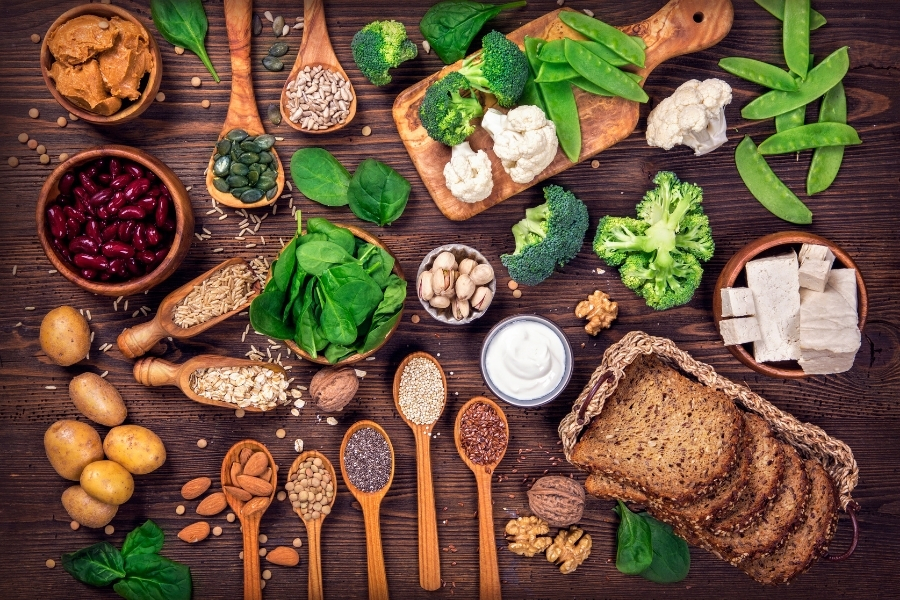
💚 "Happy Plant-Based Eating & Exercising!" 💚

Plant-Based Susy
Plant-Based Nutrition Professional & Weight Loss Coach
Empower Yourself: Embark on a Delicious Fat Loss Adventure

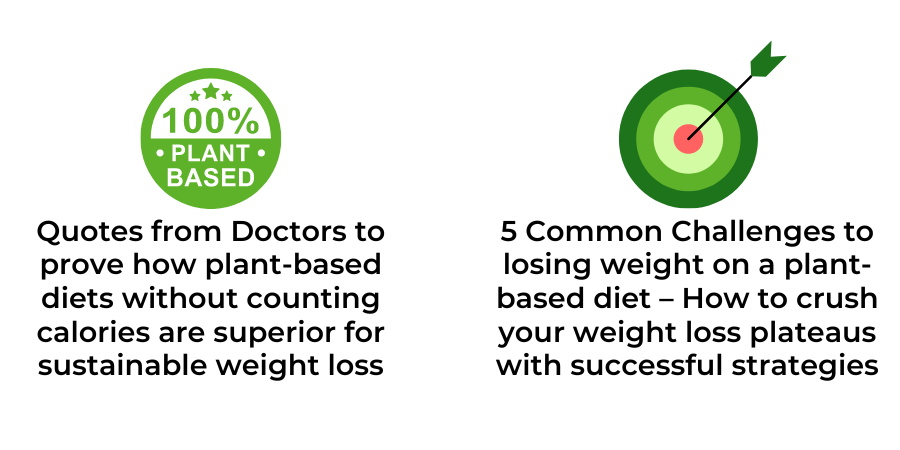
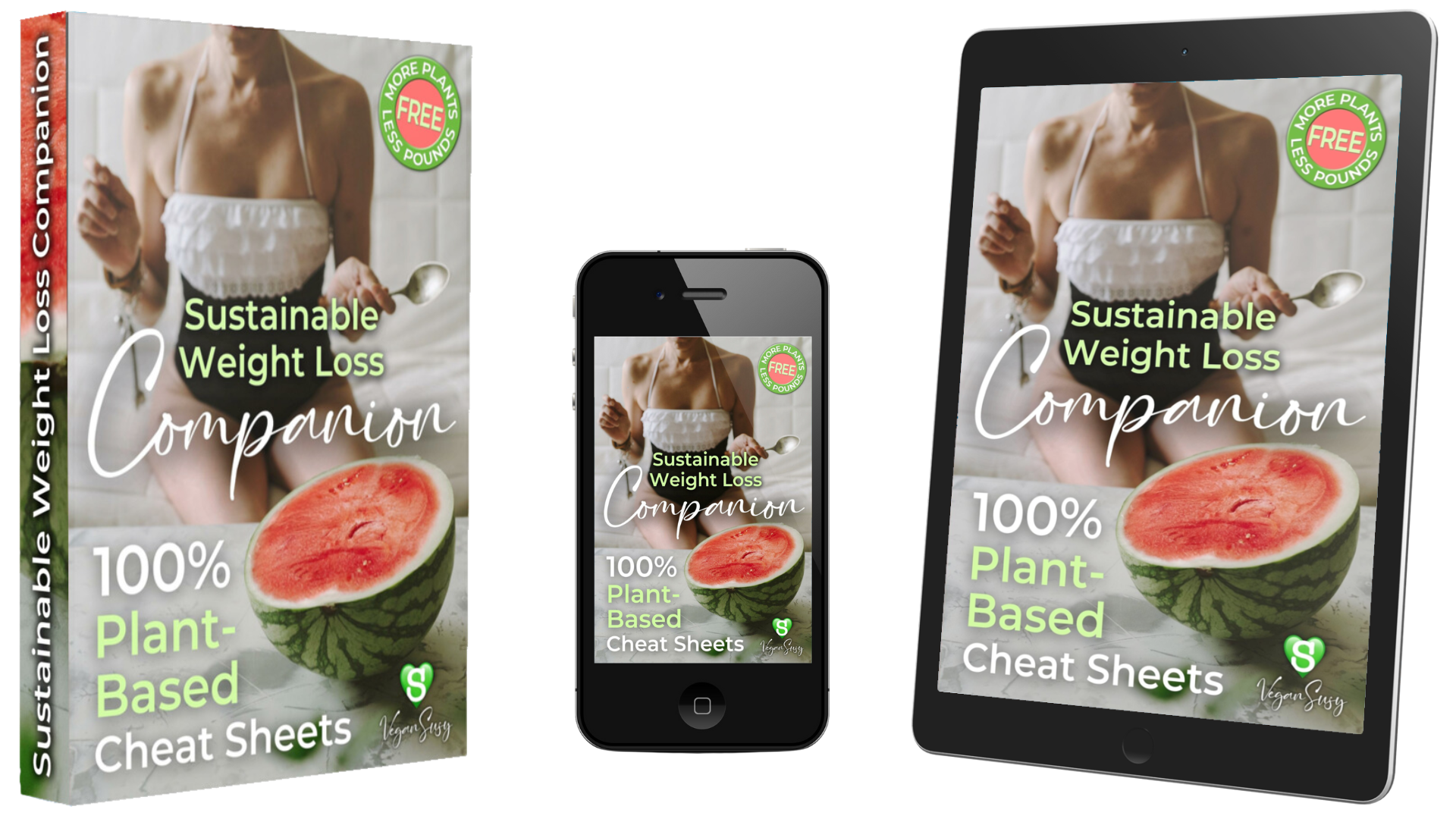
🍉 Get Ready to Jump Start Your Fitness Goals AND DISCOVER A HEALTHIER YOU!
🍉 Let's Make Your Fat Loss & Optimum Health Journey a Delicious Success Story!
🍉 Get The FREE Sustainable Weight Loss Companion eBook and CHEAT SHEETS!
More Free Resources
Unlock Your Transformation Today!
© 2025 VeganSusy Ltd. All Rights Reserved


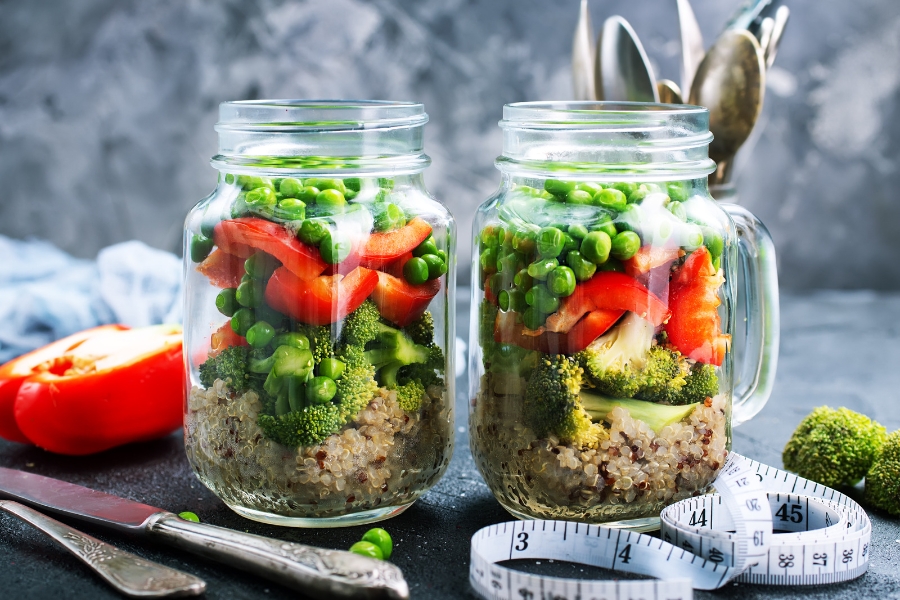
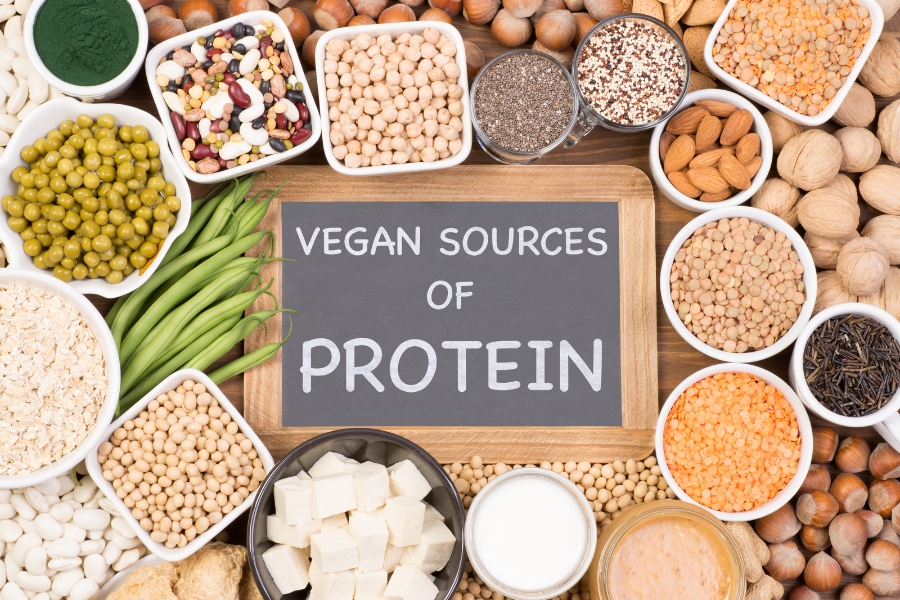

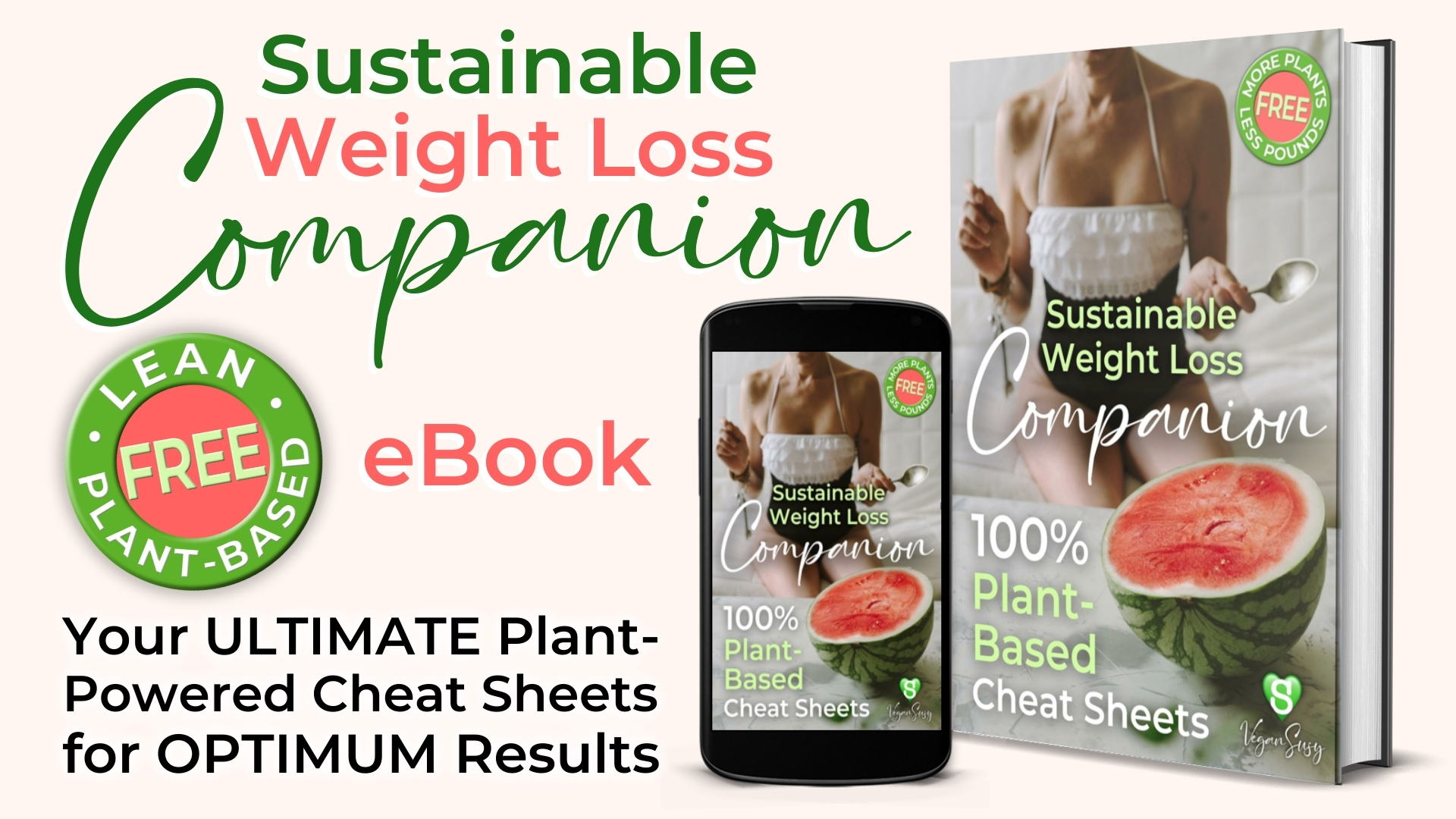





Facebook
Instagram
Youtube
Pinterest